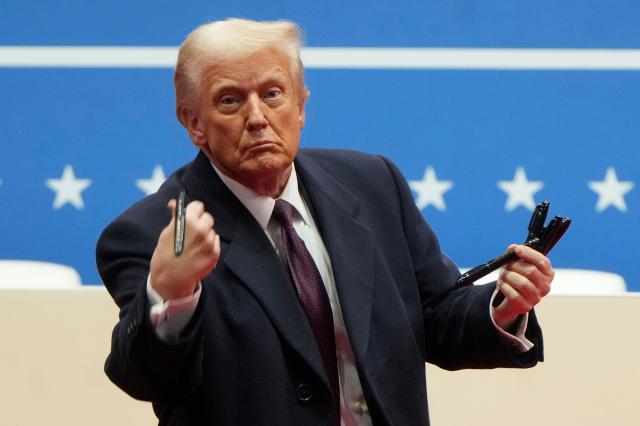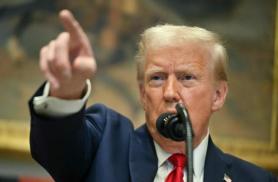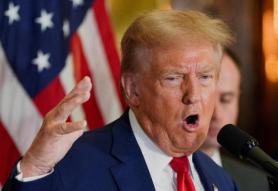
Announcing the plan on Saturday, Trump vowed to impose a 25 percent tariff on Canadian and Mexican goods, alongside a 10 percent levy on Chinese imports, rattling global markets and raising alarms among multinational corporations.
The proposed tariffs pose a significant challenge for major Korean companies such as Samsung Electronics and LG Electronics, both of which operate large-scale manufacturing facilities in Mexico that produce home appliances and televisions for North American consumers.
The automotive sector is also bracing for impact. Kia Corp., a subsidiary of Hyundai Motor Group, runs a manufacturing plant in Nuevo León, Mexico, with an annual capacity of 400,000 vehicles.
Hyundai Mobis and Hyundai Transys, key affiliates of the group, also maintain operations in the region, making them vulnerable to rising costs and potential supply chain disruptions.
Under the U.S.–Mexico–Canada Agreement (USMCA), South Korean investment in Mexico had surged from $11 million in 2020 to $396 million in 2022, with approximately 2,000 Korean companies now operating there. But Trump’s latest trade policy threatens to undermine that expansion.
Canada, North America’s primary hub for critical minerals essential to electric vehicle batteries, could also be hit hard. The tariffs are expected to increase the cost of lithium and nickel, potentially eroding the competitiveness of South Korean battery manufacturers.
Companies such as LG Energy Solution, which operates a battery module plant in Canada in partnership with Stellantis, and POSCO Future M, which is building a cathode materials factory with General Motors, now face uncertainty over supply chain costs and production feasibility.
In response, firms are exploring alternatives, with many considering expanding their U.S. manufacturing footprints.
LG Electronics, for instance, is weighing an expansion of its Tennessee facility, which currently produces washing machines and dryers, to include refrigerators in an effort to circumvent potential cost hikes.
"If tariff increases force fundamental changes to our supply chain, we will actively consider relocating production and adjusting capacity," said Kim Chang-tae, LG Electronics’ chief financial officer.
Trump has also signaled his intention to impose sector-specific tariffs on semiconductors, steel, aluminum, oil, gas, and pharmaceuticals, raising further concerns for Korean conglomerates.
For Samsung Electronics and SK hynix, both of which are investing billions in semiconductor manufacturing in the U.S., the outlook is particularly uncertain.
Trump has expressed skepticism about the Chips Act, which provides subsidies for semiconductor investments, adding another layer of unpredictability to an already volatile trade environment.
Copyright ⓒ Aju Press All rights reserved.




